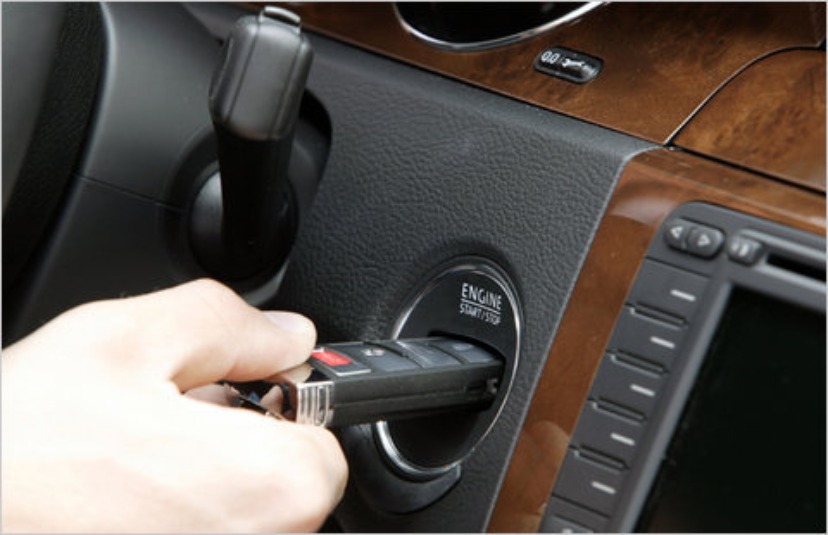According to a new report from the Mozilla Foundation, modern automobiles produced by leading global brands collect, share, and sell user data, receiving “failing marks” for protecting user privacy.
On Wednesday, research highlighting the ways automakers “share deeply personal data, including sexual activity, facial expressions, and genetic and health information” was published by Mozilla, which is perhaps best known for its open-source web browser Firefox. Ford, BMW, Tesla, Subaru, KIA, Nissan, and Toyota were specifically mentioned in the report.
“sensors, microphones, cameras, and the phones and devices drivers connect to their cars, as well as by car apps, company websites, dealerships, and vehicle telematics,” the researchers claim, are the means by which this data is gathered.
Nissan According to the study, Nissan even sells data related to a driver’s “intelligence” and “psychological trends,” among other things. The report stated, “The Japanese automaker acknowledges in their privacy policy that they collect a wide variety of information, including data on sexual activity, health diagnosis data, and genetic data,” but does not specify how.
However, Nissan acknowledged that it does collect and share information within the bounds of the law in a statement it sent to Newsweek via email on Friday.
“Nissan is very concerned about protecting customers’ and employees’ personal information and privacy. When we do collect or share personal data, we do so in full compliance with all laws and in the most open way possible. The automaker stated, “Nissan North America’s Privacy Policy includes a broad definition of Personal Information and Sensitive Personal Information, as expressly listed in the growing patchwork of evolving state privacy laws in the U.S.”
Tesla The researchers criticized Tesla, the electronic vehicle manufacturer owned by billionaire Elon Musk, for its ambiguous and confusing privacy policy. According to the report, Tesla employees were “gawking at videos captured by consumers’ cars,” and serious data breaches and leaks are common in the industry.
Misha Rykov, one of the researchers who contributed to the report, stated in a press release that “privacy flaws impact not just the driver, but also passengers and sometimes even nearby pedestrians.”
“They can hear you, see you, and track you. “Rykov stated that sitting in someone else’s car today is comparable to handing over your phone to the auto manufacturer.”
According to BMW, “the creation of these apps is not straightforward, creating the possibility of data sharing between automakers,” one of the key findings for BMW mentioned in the report was the convergence in how to address privacy concerns. An app for Toyota, for instance, is managed by BMW USA.”
In an email to Newsweek, a BMW spokesperson stated that the company also values privacy.
“BMW NA provides our customers with comprehensive data privacy notices regarding the collection of their personal information for the purpose of transparency. BMW NA provides vehicle drivers with granular choices regarding the collection and processing of their personal information for the purpose of individual control. Even in states where we are not required to do so, we voluntarily comply with customer requests for access, deletion, or correction to their data. Additionally, the spokesperson for BMW stated, “We permit our customers to delete their data on their apps, vehicles, or online.”
“Your age, gender, ethnicity, driver’s license number, your purchase history and tendencies, who your mobile network provider is, lots of location data on your vehicle and mobile device, voice commands and’other utterances captured when the vehicle’s voice recognition system is in ‘active listen state,’ and more” were found to be collected by Ford Ford, which was listed as one of the “less creepy” automakers.
In addition, the report states that before passengers accept to drive or ride in the vehicle, it is the driver’s responsibility to inform them of Ford’s privacy policies. Passage can gather similar data on all travelers as well as the driver.
Ford responded as follows to Newsweek’s inquiry regarding the report:
“Ford is committed to being a dependable steward of the personal information that our clients choose to share with us.” We use connected vehicle data to make our vehicles safer, less harmful to the environment, and more pleasurable to drive and own.”
So, which automaker was Mozilla’s “least creepy”? The Renault Corporation. “Our biggest worry is that we couldn’t confirm if they encrypt all the personal data stored on their cars,” the report stated, citing Renault’s status as a “European-based car company covered by Europe’s stronger privacy laws sure seems to help.”
Despite which vehicle you drive, it could be an ideal opportunity to check out at your automaker’s security approaches.
According to Albert Fox Cahn, a technology and human rights fellow at Harvard’s Carr Center for Human Rights Policy, “Increasingly, most cars are wiretaps on wheels.” The gadgets that drivers pay increasingly more cash to introduce are gathering an ever increasing number of information on them and their travelers.”
He stated, “Transforming the privacy of one’s car into a corporate surveillance space is something uniquely invasive.”
Newsweek contacted the press workplaces of the multitude of automakers referenced in this report through email for input.
